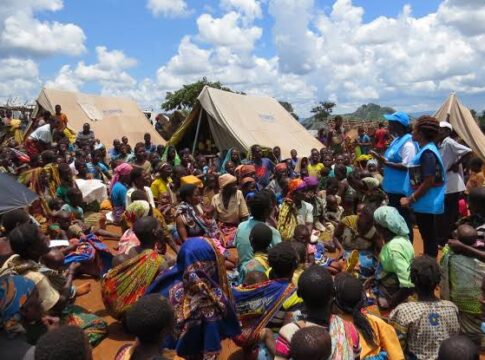Mozambique’s election crisis has forced over 2,000 families to flee into Malawi, Malawian officials revealed this week, as violent protests escalate. The unrest, which has claimed at least 252 lives since October, is tied to a disputed election that many believe was marred by fraud. Businesses, including banks, shut down in the capital Maputo as fear and chaos gripped the nation.
Malawian authorities confirmed that 2,182 Mozambican families have sought refuge in the Nsanje district, near the border. “We are overwhelmed by the number of people arriving daily,” a senior Malawian official said, urging humanitarian organizations for immediate assistance.
Protests erupted after Mozambique’s Constitutional Council validated the October election results, confirming the ruling Frelimo party’s victory. Opposition groups have accused Frelimo of electoral fraud, a claim the party denies. The monitoring group Plataforma Decide reports 125 deaths since Monday’s court decision alone, underscoring the worsening violence.
READ MORE: Nigerians Grapple with Power Crisis as GenCos’ N2.7 Trillion Debt Hampers 6,000MW Goal
International businesses in Mozambique are also feeling the impact. Mining giant Gemfields Group temporarily suspended operations at its ruby mine after protesters attempted to breach its residential site, torching structures. “The safety of our employees remains our top priority,” the company stated on Friday. Mozambican security forces killed two individuals during the incident.
The unrest extends to Mozambique’s correctional system. On Christmas Day, a riot at a Maputo prison led to 33 deaths and the escape of over 1,500 inmates, some of whom have since been recaptured.
Western observers, including the European Union, have criticized Mozambique’s election, calling it neither free nor fair. Frelimo, which has ruled since Mozambique’s independence from Portugal in 1975, faces mounting scrutiny amid growing calls for political reform.
As tensions rise, Malawi struggles to accommodate the refugee influx while Mozambique grapples with deepening instability. The crisis threatens to destabilize the region, with the international community urging calm and dialogue.




